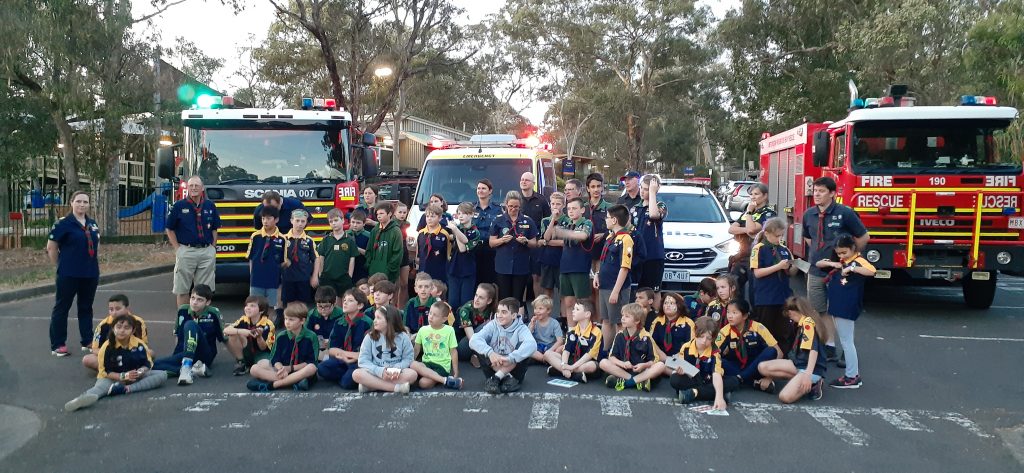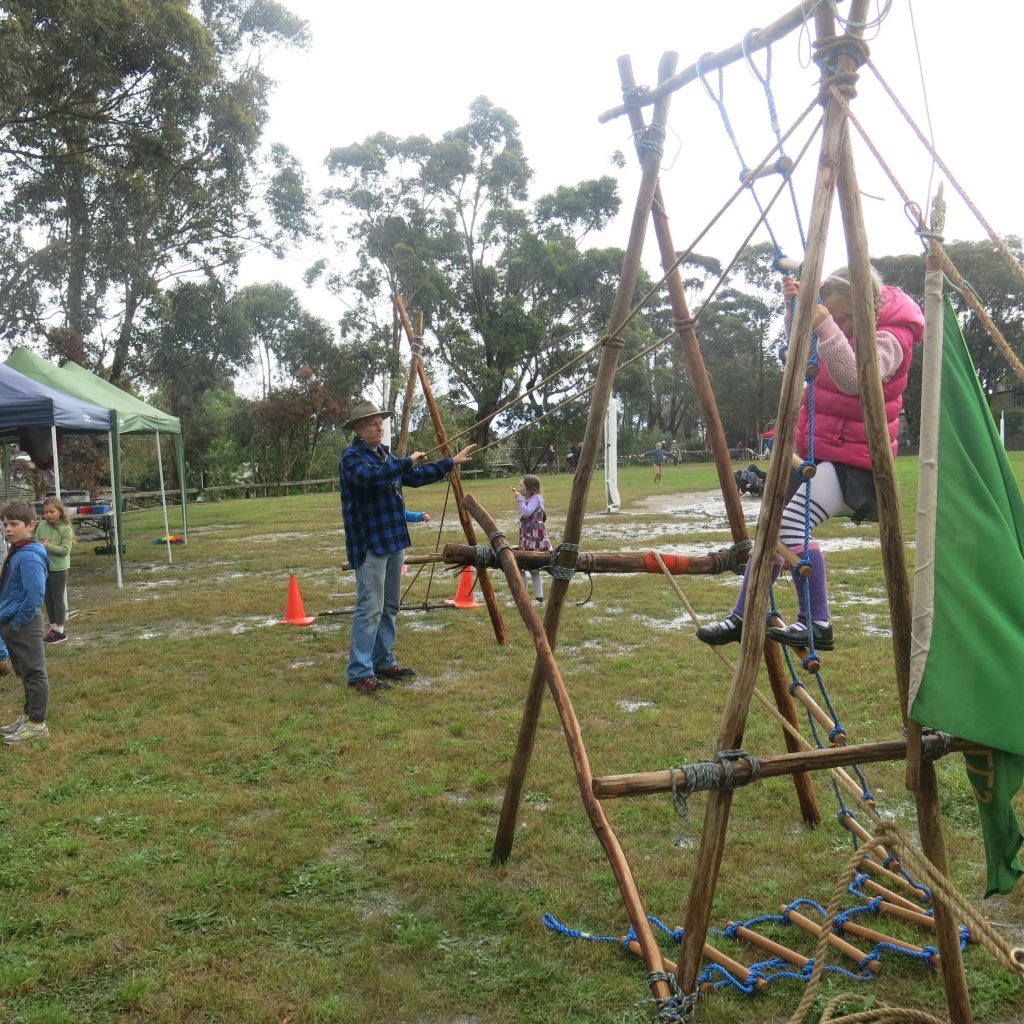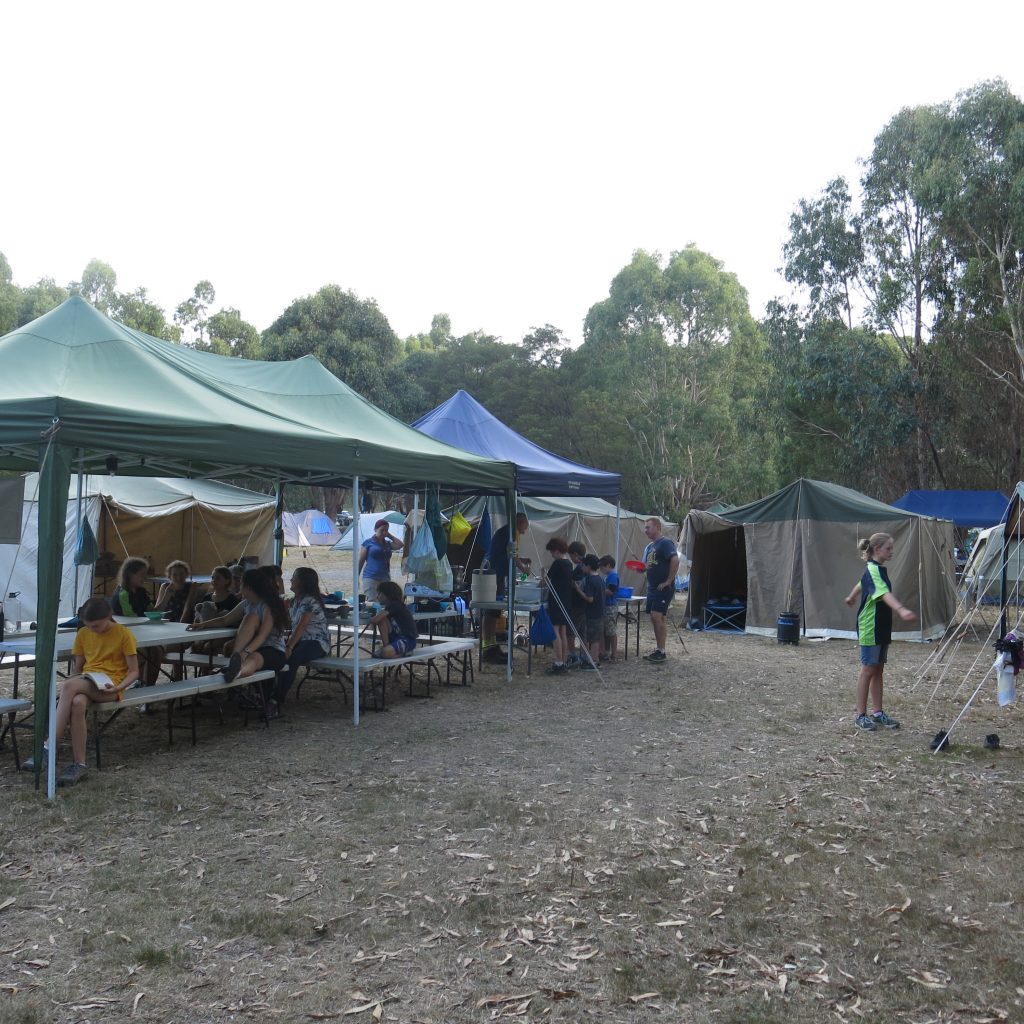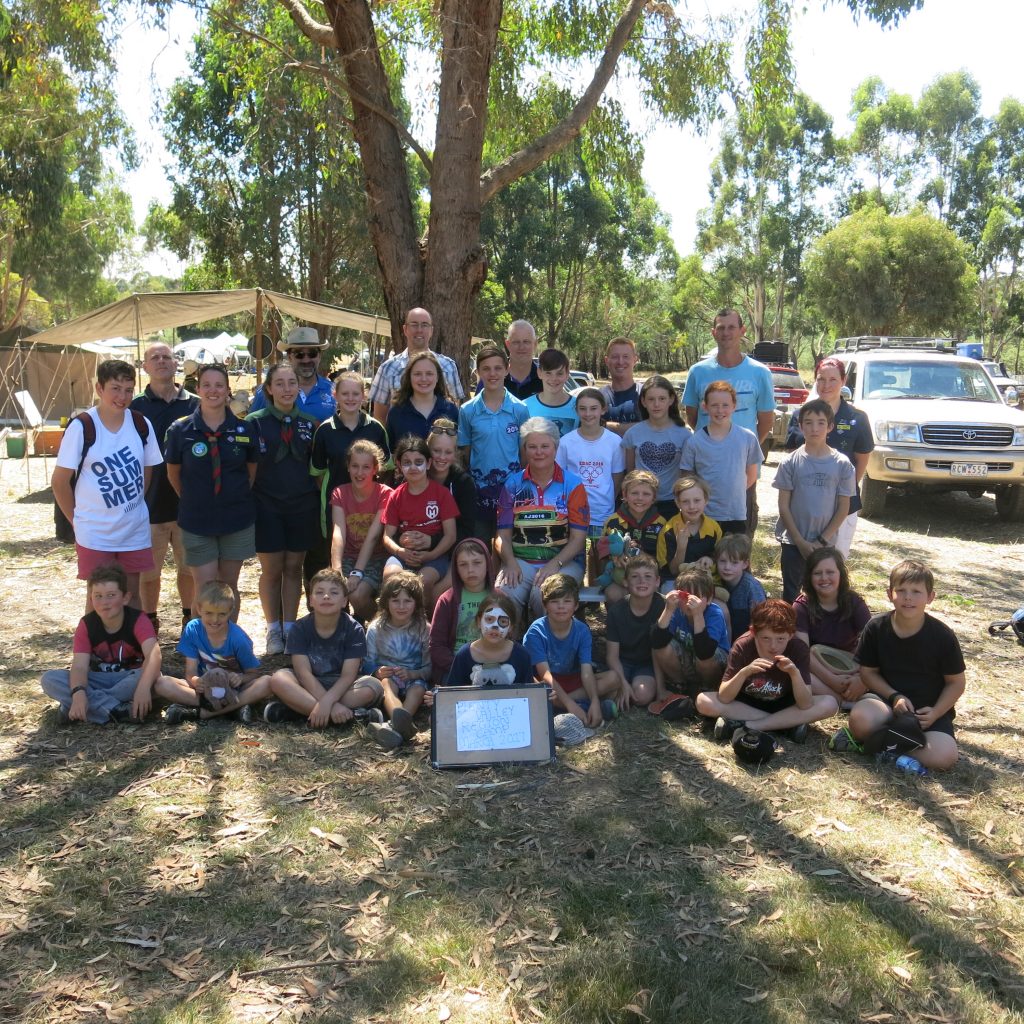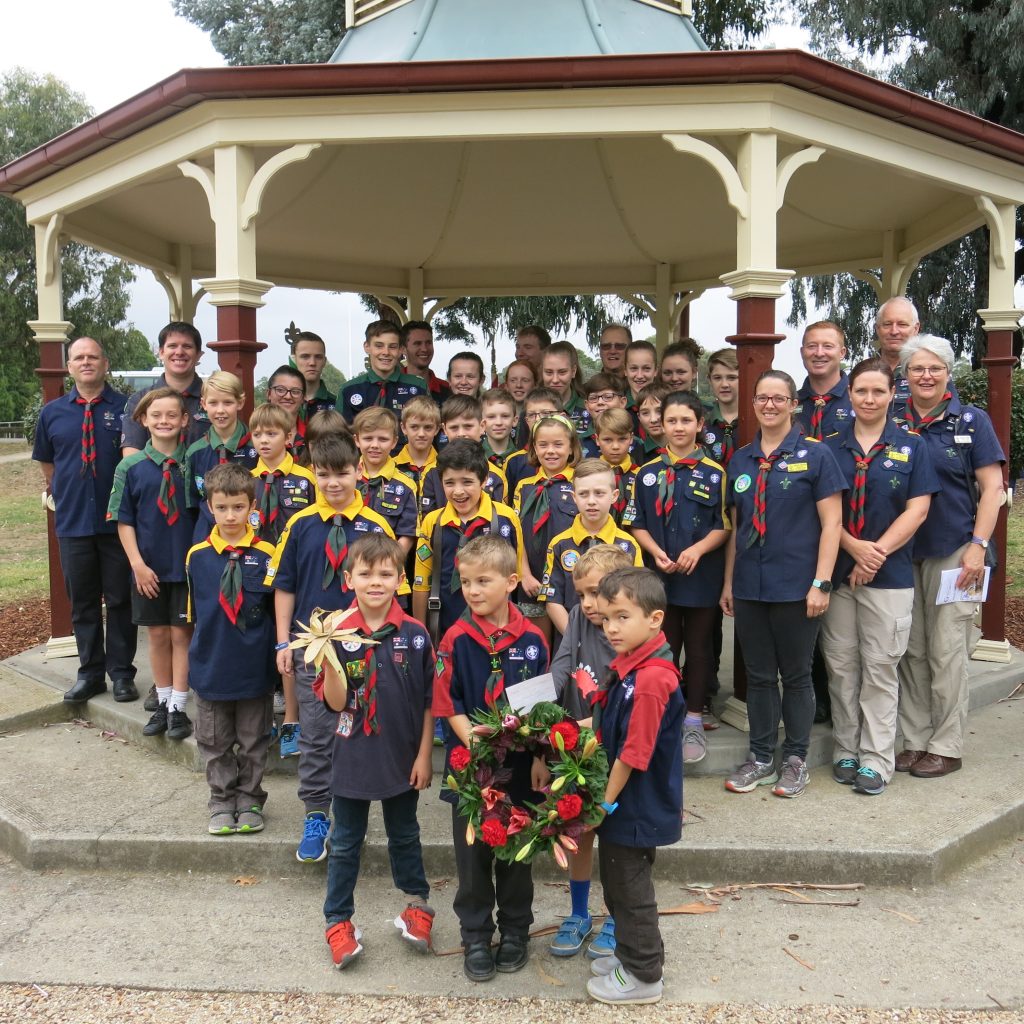Welcome
Congratulations on joining Greenhills Scout Group! If you haven’t yet joined, that’s ok. We hope the information on this page is helpful to you.
Your child is now part of a global organisation which today has more than 50 million members.
Over the past 110 years more than two billion young people have benefited from the Scouting program.
In Victoria there are Scout Groups like ours in 400 local communities.
Greenhills Scout Group is run by local families who help make Scouting the best possible experience for their children.
In this guide you’ll find some details about how Scouting works. In particular, there are some suggestions on how parents and caregivers can help their children get the most from their time in Scouting.
Welcome to Scouting! We wish your family lots of fun, friendship, adventure, and safe times ahead.
Information republished from Scouts Victoria’s Parent and Caregiver Guide with permission.
Contents
- The benefits of Scouting
- What is Scouting?
- What is the program?
- What is the uniform?
- What is the cost?
- Values
- Our commitment to child protection
- Unacceptable behaviours
- Code of Conduct
- Help your children get the most from Scouting
- We’re playing on the same team
- How to talk with the Leaders
- Scout talk
The benefits of Scouting
There are many lifelong advantages that young people get from their years enjoying Scouting with friends and family. Here are some of the opportunities your child will get:
Resilience
In 2018 the Resilient Youth Australia survey of our youth members highlighted some of the benefits of Scouting. The main benefit is above-average Resilience – the strength to deal with the challenges of modern life.
Mental Health
The 2016 UK Childhood Study found that former Scouts are 18% less likely to suffer mood or anxiety disorders than non-Scouts, even decades later, as adults. The study said programs like Scouting that support resilience, social mobility, ‘soft’ non-cognitive skills, self-reliance, collaboration, and activities in natural environments may help protect mental health in adulthood.
Leadership
Unlike school or sport, in Scouting every young person gets a chance at developing their skills in leadership. Scouting is literally developing Victoria’s leaders of the future.
Academic Outcomes
Scouting is linked with better school results, especially at upper secondary levels. The meta-research of Prof. John Hattie, of the University of Melbourne, shows that secondary students do better when they do an extra-curricular activity which is organised and structured, with regular programs, increasingly complex skill building, leadership by one or more competent adults, a social network, leadership opportunities, and age-appropriate goals and expectations. This sounds exactly like Scouting!
What is Scouting?
Scouting is a non-formal type of education.
Young people learn new skills and responsible independence through the Scout Method. Although our programs are continually updated to remain contemporary, the Scout Method has stood the test of time.
Elements of the Scout Method include:
Learning by doing
Young people learn best through practical experiences, not theory.
Learning in small team
Leadership and social skills are developed through teamwork and a sense of belonging.
Learning outdoors
The outdoors is our main location for learning. This encourages a two way relationship between the individual and the natural world.
Community involvement
Scouts of all ages actively explore and learn about their responsibility to their community and the wider world.
Personal progression
The learning journey focuses on challenging each individual to do their best through a range of experiences.
The Scout Promise and Law
These are a simple set of common values that underpin all Scouting activities and interactions.
Youth leading, and Adults supporting
As they progress through the Sections of Scouting, young people are increasingly self-managing. With help from their volunteer adult Leaders.
What is the program?
A good program includes lots of different adventures, lots of time in the outdoors, and has significant input from the youth members themselves. A basic part of the program is the Award Scheme – the badges that Joey Scouts earn toward their Promise Challenge, Cub Scouts toward their Grey Wolf, Scouts toward their Australian Scout Medallion, Venturers toward their Queen’s Scout award, and Rovers toward their Baden-Powell Rover Scout award. Details of the badge schemes for each section are available but it is wise to talk to your child’s section leader to completely understand what is required.
And while many strive for these peak awards, they’re not for everyone. Some youth members are happy to enjoy camps, weeknight meetings and occasionally achieve badges. Scouts Australia is currently transitioning toward a new program, One Program for all Sections – Joeys, Cubs, Scouts, Venturers and Rovers – where the skills learned in younger Sections are built on at each level.
What is the uniform?
The basic uniform is the shirt and scarf (which is usually held together by a woggle, often a piece of leather). The shirt is available from The Scout Shop for around $45.00 (incl. GST)
Group Scarf, woggle and investiture badges are available from our Group once Group Fees have been paid.. Your child’s leader will inform you when your child will need this.
Hats and belts are also available from the Scout Shop if you are interested in these products,
All prices are subject to change.
What is the cost?
Every Scout Group charges an annual (or term-by-term) fee which covers the annual fee payable to Scouts Victoria, and a Group fee to cover costs such as rates, power, equipment, insurance, Leader training, and more. This varies from Group to Group depending on local factors such as how much fundraising the Group does, other financial pressures (eg hall maintenance).
Annual fees for Greenhills Scout Group are available on application.
If your child joins during the year the fees are worked out on a Term by Term bases.
There is also the cost of activities such as camps. These are kept as low as possible because we usually use our own campsites and Leaders are unpaid volunteers. Major events held every few years (like Cuboree and Jamboree) cost more because of the scale of the program and entertainment, but most Groups work together to lower the individual cost, through fundraising. Financial issues should not be a barrier to any child being a Scout. If you have any concerns, please speak with your Group Leader to discuss payment options.
Values
Scouting is a values-based organisation.
The Scout Promise and the Scout Law underpin this. Every member of Scouting in the world makes the Scout Promise when they first join Scouting, and at major milestones in their Scouting journey. This includes an undertaking to live by the Scout Law.
The Scout Law is a simple code for living.
The Scout Promise comes in two forms, and members choose which version they wish to make.
That is, the version which best aligns with their beliefs. Both versions include a pledge to ‘help other people’, as helping others is a fundamental value of Scouting.
The Scout Law
BE RESPECTFUL
- Be friendly and considerate
- Care for others and the environment
DO WHAT IS RIGHT
- Be trustworthy, honest and fair
- Use resources wisely
BELIEVE IN MYSELF
- Learn from my experiences
- Face challenges with courage
The Scout Promise
On my honour,
I promise to do my best,
To be true to my spiritual beliefs,
To contribute to my community and our world,
To help other people,
And to live by the Scout Law
OR
On my honour,
I promise to do my best,
To do my duty to my God,
And to the Queen of Australia,
To help other people,
And to live by the Scout Law
How we treat each other in Scouting
All uniformed members make the Scout Promise and strive to live up to the Scout Law.
It’s a code for life, and each of us tries to do our best.
But it also applies to how we treat each other.
And that’s the same for all of us – Joeys, Cubs, Scouts, Venturers and Rovers; Leaders and Adult Helpers; office-bearers, Fellowship and other supporters; and parents.
We all have rights and we all have responsibilities. These include:
| RIGHTS | RESPONSIBILITIES |
| To be respected | We listen to each other, speak calmly, and consider all views. |
| To trust and be trusted | We are honest in our relationships and discussions. |
| To learn | We understand that mistakes are part of learning. We celebrate each other’s achievement. |
| To be supported | Everyone helps each other in Scouting. We are all responsible for ensuring that others are OK. |
| To have fun | We have fun in Scouting but that must not impact negatively on others. |
| To be safe | We don’t harass others, physically or verbally or online. Or let others do this. |
Our commitment to child protection
Scouts Victoria is a Child Safe organisation. We take a zero-tolerance approach to any form of abuse or neglect. We also celebrate and value diversity amongst our members, regardless of their gender, sexuality, race, religion, or ability.
Scouts Victoria is dedicated to ensuring that we develop the appropriate culture and supportive environment to make Scouting a safe place for young people.
Here are some of the things that we do to make our organisation safe for children:
Every adult member (anyone registered as a member and over the age of 18) is required to hold a Working with Children Check (WWCC). This includes our volunteer Leaders, Adult Helpers, Rover Scouts and staff. Key office bearer roles with access to information are also required to hold a Working with Children Check.
In addition, all Leaders and Adult Helpers are required to undergo a National Police Records Check every three years, and, when applying for membership, must provide three referees, even if they are already a member of Scouting. Referees are asked about the applicant’s suitability for the role.
Our Adult Members must also uphold our Code of Ethics, Code of Conduct and our Child Safe Scouting Commitment. Any breach of these codes can result in a termination of membership. Our adult members must review and reaffirm their commitment to these codes every 12 months.
All adult members are required to undertake training, including training in Child Safe practices, so they know what to do if a young person discloses abuse, harm or neglect, and how to adequately support the child or young person. Child Safe training has to be renewed every three years.
Other aspects of Child Safe Scouting include:
- ‘Two adult leadership’ – At least two adults should be present when working with youth. In some cases, more are required.
- ‘Within sight, out of hearing’ – Adults are expected to avoid any situation where they are alone with a child, except where strictly necessary. When a one-on-one conversation is necessary this should be in sight, but out of hearing.
We empower our young people through Youth Leading and Adult Supporting. Youth members are active participants in decision-making in Scouting. This encourages them to have confidence that they will be heard.
Any reports of child abuse, harm or neglect are taken seriously and dealt with promptly, reported to relevant authorities, and corrective action undertaken.
The safety of our members is our highest priority. It is everyone’s responsibility to ensure this.
How to report
Anyone can report any incident of unacceptable behaviour to our Child Safety Team immediately on 1800 870 772 (24 hours a day, 7 days a week). Or email us at childsafe@scoutsvictoria.com.au.
The safety of our members is our highest priority. It is everyone’s responsibility to ensure this.
To find out more about how we create a Child Safe organisation, visit Child Safe Scouting on the Scouts Victoria site.
Unacceptable behaviours
It is important that the young people in our care are safe, and that they feel safe.
It is also important that adults are safe.
The following behaviours are unacceptable by Adults in Scouting.
- Any form of physical, emotional, psychological, sexual, cultural, racial or religious abuse
- Entering an area where children are changing or showering, or entering youth members’ tents or sleeping areas on camp when young people are in bed (without a valid reason, such as an emergency)
- Transporting an individual youth member alone (unless their own child, or in an emergency)
- Communicating one-on-one with youth members outside of Scouts through text messaging or via social media
- Developing special relationships, including one-on-one catch up sessions for missed Scouting activities
- Distributing inappropriate materials via any channel
- Engaging in discussions with young people that are not age-appropriate
- Encouraging the use or consumption of alcohol, smoking, or use of illicit substances by youth members
- Being under the influence of alcohol or illicit substances while undertaking duties as an Adult in Scouting
- Behaving towards a youth member in a manner that makes them uncomfortable
- Breaching the Scouts Australia Code of Conduct.
Adults in Scouting also commit to our Code of Ethics.
Anyone can report any incident of unacceptable behaviour to our Child Safety Team immediately on 1800 870 772 (24 hours a day, 7 days a week). Or email us at childsafe@scoutsvictoria.com.au.
Code of Conduct
This Code of Conduct is a personal commitment.
Its purpose is to protect all members of Scouting.
It applies to all members over the age of 18, regardless of location and role, when engaging with young people and adults in any form.
This includes face to face contact and using technology such as online formats.
Parents and guardians who wish to actively participate in Scouting activities must also follow this Code.
I will set an example that I would wish others to follow.
Therefore, I will:
- respect the dignity of myself and others.
- demonstrate a high degree of individual responsibility.
- recognise at all times that my words and actions are an example to other members of the Movement.
- act at all times in accordance with the Promise and Law, Code of Ethics and this Code of Conduct, thereby setting a suitable example for all.
- not use the Movement to promote my own beliefs, behaviours and practices where these are not compatible with Scouting Principles.
- adhere to the Scouts Australia Child Protection Policy and provide a safe environment for youth members participating in the Scout Program, their parents or guardians and visitors.
- report any conduct seen or heard that does not comply with this Code of Conduct to the appropriate Scouting person.
Help your children get the most from Scouting
There are many ways parents can help their children get the most from Scouting.
These include:
- Read the Award Scheme book for your child’s Section so you can support and encourage them to gain badges.
- Act as a supervisor for badgework tasks that your child has to do at home.
- Encourage your child to participate in activities like camps, adventurous activities, District activities, State and National events, which form a significant component of the Award Scheme.
- Help out with transport. Driving a carload of kids to or from a camp can be an entertaining insight!
- Helping with fundraising to keep the cost of Scouting down.
Your Greenhills Scout Group is like the local franchise of the worldwide Scout organisation.
Scouts Victoria provides:
- basic program – badgework
- major events like Kangaree, Cuboree, Jamboree
- adventurous activities (abseiling, canoeing, sailing, and many more)
- program resources (publications, apps)
- campsites (including ski lodges)
- Leader training (for adults)
- insurance
- marketing
- fundraising support
- communications
- legal support.
Greenhills Scout Group provides:
- Adult Leaders (volunteers who are screened, police-cleared, trained)
- The local program
- Support like the hall, gear and finance.
Who is responsible for the local Scout Group? We are. The local community.
Now that your child has joined Scouting, you are a part of the broader Scouting family. Welcome! We encourage you to become involved in activities and programs. There are very few organisations where parents are able to participate fully in activities alongside their children, Scouting is one of them.
Parents and guardians sometimes wish to attend ongoing activity evenings (more than the occasional visit every couple of months) or an overnight activity. Just like our volunteer Leaders, to help us ensure young people’s safety, all adults need to get a Working With Children Check, with Scouts Victoria listed as the organisation you are working with and some e-learning units on Child Safety.
Other ways that parents help their local Greenhills Scout Group include:
- volunteering as Leaders
- volunteering as Adult Helpers (screened, less training, not uniformed)
- enjoying helping out on weekend activities
- volunteering on the Group Support Committee (usually meets monthly)
- helping with fundraising, maintenance etc.
When parents help Greenhills Scout Group, the Leaders are free to focus on delivering great program to the Joeys, Cubs, Scouts, Venturers and Rovers.
If you want Scouting to be a great experience for your children, please help your Group be a great Group.
It is important, for Leaders to give the best care for your child, that you inform them of any learning conditions or medical issues. If your child is on medication please also ensure that this is recorded in CareMonkey and is sent with your child to Scouts.
We’re playing on the same team
Scouting is a friendly and welcoming activity.
- All youth are welcome to join.
- Participation is not restricted to those with existing skills and ability.
- All get a turn at leadership and the chance to develop their skills.
- And all can earn “trophies” – our peak awards like the Promise Challenge, Grey Wolf, and others.
Parents are also very welcome to participate.
In fact, they are integral to the success of the Greenhills Scout Group and your child’s Scouting experience.
Parents and Leaders, and others who lead Greenhills Scout Group, are on the same team.
- Many parents are Leaders and Adult Helpers.
- Most Leaders are parents
- Parents can even be “out on the field” playing beside their kids – attending Cuboree, Troop camps etc
But, while tempers might get heated on the side-lines of sport, this is never OK in Scouting.
- It is never OK for adults or children to raise their voices at others in Scouting.
- No matter what the issues, we sort them out as friends, with respect and honesty.
- And sometimes we need to get assistance when there’s a problem.
We also want our interactions to set a good example for young people.
How to talk with the Leaders
Sometimes parents and caregivers have questions or concerns.
The first point of contact is the Leader of your child’s Section – the Joey Scout Leader, Cub Scout Leader, Scout Leader or Venturer Leader.
Our volunteer Leaders are committed – like you – to your child enjoying and benefiting from their time in Scouting.
Please be aware that meeting nights are busy – sometimes it is difficult to have a detailed conversation during or immediately after the meeting. You may like to give them a call or even offer to catch up for a coffee!
Of course, if there is a safety issue, you should get the attention of your child’s Leader immediately, and let them know.
If you still need information or your child’s Section Leader is unable to help, the next contact is the Group Leader of Greenhills Scout Group.
Your Group Leader is the most senior local Scouting volunteer, responsible for all the youth members and Leaders in all Sections of Greenhills Scout Group.
If that doesn’t work out – or the Group Leader is unavailable – you are welcome to contact our State Office on 03 8543 9800 and we can put you in touch with your local District Commissioner, the senior Scouting volunteer who coordinates all the Scout Groups in your local area.
This process doesn’t apply if you believe there is a breach of Child Safety. Anyone can report any incident of unacceptable behaviour to our Child Safety Team immediately on 1800 870 772 (24 hours a day, 7 days a week). Or email us at childsafe@scoutsvictoria.com.au.
Scout talk
Scouting has its own language! Here are some terms you may hear:
Our youngest Scouts are children aged 5-8. They meet each week as a Joey Scout Mob. Every two years they have a State-wide weekend camp called a Kangaree. Joeys can earn a major award called the Promise Challenge.
Cubs are children aged 8-11. They meet as a Cub Scout Pack, where they operate in small teams called Sixes. Each Six is led by an older Cub called a Sixer. Sixers and their Leaders meet to plan their program. This group is called the Pack Council. Every three years more than 3600 Victorian Cubs enjoy a huge week-long camp called a Cuboree. Cubs can earn a major award called the Grey Wolf.
Scouts, aged 11-14, are the original Section of Scouting and have been co-ed since 1988. Scouts began at a trial camp in England in August 1907. Scouts meet as a Scout Troop, which is comprised of small teams called Patrols, led by a Patrol Leader. PLs meet with their Leaders as the Troop Council, to plan their program and plan other aspects of the Troop. By now, youth members are increasingly taking over the running of their Section – planning their program, managing finance, and even dealing with any behaviour problems. Every three years Scouts from around Australia and beyond gather for a two-week camp called a Jamboree. Scouts can earn the award called the Australian Scout Medallion.
Venturers, aged 14-18, and have a much larger say in their own activities. Venturers meet as a Venturer Unit. Members of the Unit elect the Unit Chair, Secretary, Treasurer and other office bearers, who meet as the Unit Council, to plan their program and other aspects of the Unit.. Scouts have Jamborees; Venturers have a national event called a Venture every three years. Many also go to the New Zealand Venture. Venturers and older Scouts also attend World Jamborees where tens of thousands of Scouts from around the world gather. Venturers can earn a major award called the Queen’s Scout award.
Rovers are young men and women, aged 18-26, who run their own program, finances, property, major events and much more. They have a strong annual program including motor sport and social events. Their major events are called Moots. The peak award in this Section is the Baden-Powell Rover Scout award.
Leaders
Leaders are the adult volunteers who put many hours into Scouting each week – and in return get great satisfaction, friendships, skills, and experiences. Most Leaders are parents. All Leaders go through several stages of screening (which are renewed regularly), and do training programs, which must also be kept up to date. Leaders of Youth work directly with Joeys, Cubs, Scouts, Venturers and Rovers, while Leaders of Adults provide support at the Group, District, Region and State levels.
Adult Helper
An Adult Helper, usually a parent, helps out from time to time, at occasional meetings, weekends away or major Scouting events. Adult Helpers are screened before being allowed to work with young people and do basic online training. Adult Helpers don’t wear Scout uniform.
Scout Group
The Scout Group is made up of all the Sections in the local Group. A Group may have all five Sections (Joeys, Cubs, Scouts, Venturers and Rovers) or just a Cub Scout Pack and a Scout Troop, or some other combination. Some Groups have multiple Joey Mobs or Cub Packs.
Group Leader
This is the volunteer manager of the Scout Group.
Group Support Committee
The Committee is generally comprised of parents who might meet monthly, while their children are at Cubs or Scouts. They support the Group and the Leaders by taking care of the hall, the Q-store and all the camping gear it stores, the finances, and many other important jobs to keep the Group running smoothly. These meetings can be quite social.
District
A Scout District is a set of Scout Groups, usually as prescribed by the local council boundaries, or Local Government Area. Each District is managed by a volunteer District Commissioner.
Region
A Scout Region is a group of Scout Districts. In Victoria there are five metro Regions (Bays, Lerderderg, Melbourne, Mount Dandenong and Plenty Valley) and six rural Regions (Geelong, Gippsland, Loddon Mallee, Northern, West Coast and Western). Each Region is managed by a volunteer Region Commissioner.
State Team
Scouts Victoria is led by the Chief Commissioner, Deputy Chief Commissioner, and the rest of the State Leadership Team (the seven Assistant Chief Commissioners). There are also many senior volunteers with expertise in Adventurous Activities, Major Events, Risk and Safety, and many other aspects of Scouting.
Victorian Scout Centre
The Victorian Scout Centre at Mount Waverley is home to the professional staff and State Leadership Team of Scouts Victoria. Our support staff assist with key functions including membership management, information technology, marketing, communications, child safety management, community development, training and facilities management. For more about our State organisation..
Camp Warringal, Gilwell Park, Clifford Park, Treetops, Eumeralla, Mafeking Park, Bay Park
Camp Warringal near Whittlesea, Gilwell Park near Gembrook, Clifford Park near Wonga Park, Treetops near Macedon, Eumeralla near Anglesea, Mafeking Park near Yea and Bay park near Mount Martha are just seven of more than 80 Scout-owned campsites across Victoria. Your child may visit many of them for weekend adventure.
Care Monkey
CareMonkey is the electronic system used by Scouts Victoria for parents/carers/individuals to share member health records, permission forms and contact details. Your child’s school may also use this system. If this is the case you just need to share the information with the Scouts Victoria.
